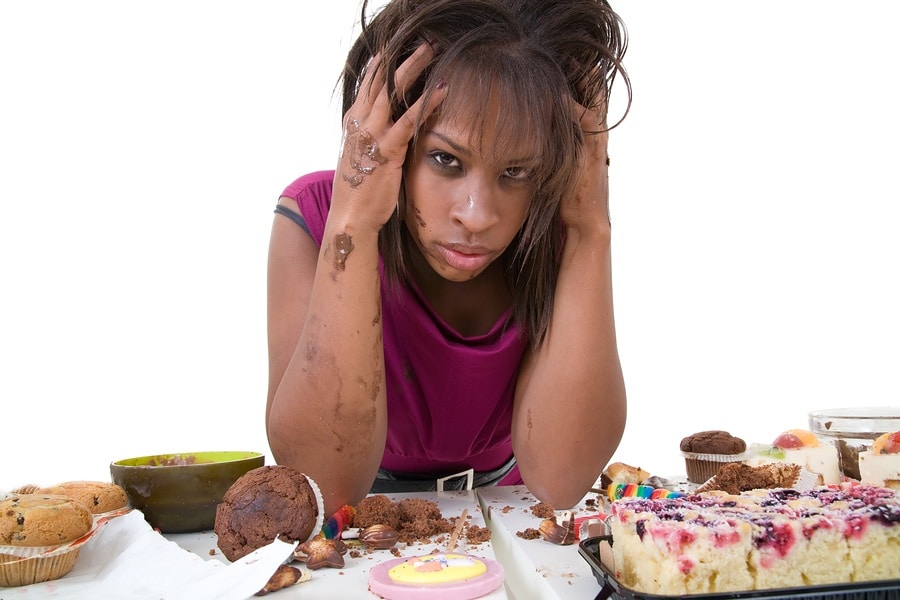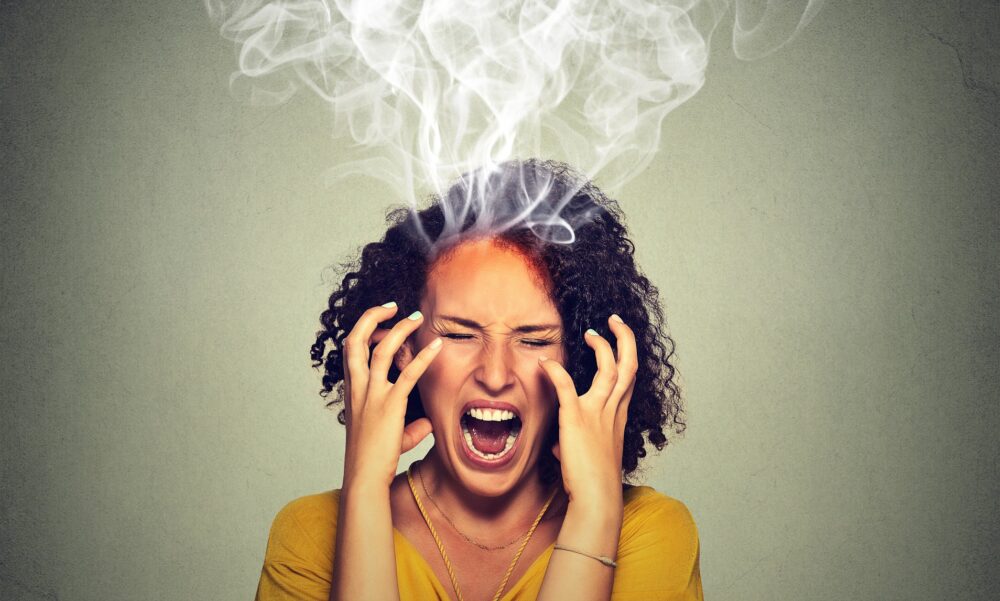Where there is love, there is (unfortunately) heartbreak which is inevitable and a terrible thing to go through. Nothing can describe the terrible pain you feel when you go through a breakup. It may feel like a weight on our shoulders or pain in our chest. It may feel like your soul has been lit on fire. Every waking moment may feel like an agony and every breath a tragedy. Some days may feel better than others but other days you feel pain like no other. You feel like your soul is being ripped apart and calling out in agonizing pain for that person to come back. Your dreams haunt you. Your sleepless nights torment you.
You cry. You scream. You watch Netflix until you’ve seen every series and movies your subscription has to offer and yet nothing seems to soothe the longing you feel. No amount of pain will ever feel so agonizing and visceral. It feels like a giant hole been pummeled into your chest, with no hope of repair.
Heartbreak hurts. It’s a phrase we’ve all heard. But, did you know heartbreak can even kill you? So, what does heartbreak really do to your body? And what does your brain look like when you’re in the throes of such agonizing heartbreak?
The answer can help us understand not only what’s happening inside our lovelorn bodies, but why the pain of heartbreak feels relentless and then how our body chemistry changes and we are able to feel better again.
While the visceral sensations of heartbreak lead us to focus on our heart, the organ we fail to worry about is the brain. When our heart gets broken, it impacts our brain adversely. Our brain responds dramatically and it is these reactions that are responsible for all the terrible “symptoms” we associate with heartbreak.

As most of you know all too well, when you go through from the finale of a romantic relationship that you didn’t want to end, your emotional and bodily reactions are a tangle: You’re still in love and want to reconcile, but you’re also angry and confused; simultaneously, you’re wishing for a “fix” of the person who has abruptly left your life, and at times you may even go to dramatic and embarrassing lengths to get it, though part of you knows better.
What heartbreaks exactly do to you, have a wide range of effects, both psychologically and physically, as the chemicals in your body attempt to balance themselves.
To understand, why we feel, think, and behave as we do when we’re heartbroken, let’s walk through the real effects of heartbreak.
You’ll want to be alone, but you need to avoid it
After going through a breakup, the only thing you want to do is be alone. Instead, you need to get those dopamine levels up. Dopamine is a chemical that ‘gets the reward system of our body going’. When you are in love, your body releases high level of dopamine. Thus, making love a pleasurable experience. And the shortage of dopamine in your body causes a lack of desire. We may feel like doing nothing and just sit in your own puddle of thoughts. And then you may start creating self-centered stories to explain your feelings. Why am I feeling this way? Is it because nobody loves me? Because I am a loser? Because they are all mean? Theories about why you are feeling lonely often become confused with facts. Thus translating it into a larger problem.
The sudden absence of your partner may create a hole in your life. You’ll find nobody filling that space. The sense of you suddenly being left with you only can have a detrimental impact on your health.
According to researchers, loneliness can be a killer. It increases stress and is a risk factor for physical problems such as addiction or heart conditions as well as psychological problems such as depression, anxiety, and even suicide. But loneliness — whether it comes in spurts on a long weekend, or whether it is chronic and inherent — is a natural consequence of an ending of any relationship. It is because of psychological attachments that are suddenly cut off. And so, losing any of these bonds, including romantic ones, lead us to feel strong negative feelings because we’re social creatures and our brains have evolved to help us want to preserve social bonds.

You either get really heavy or really thin
The human brain loves love. Love lets the happy hormones (Dopamine and Oxytocin) flow and our brain bathes in the bliss. But when the one you love leaves, the supply of feel-good hormones plunges and the brain starts releasing stress hormones (Cortisol and Epinephrine).
And having your heart broken may go one of two ways: you either binge-eat or eat nothing. It’s all about how you cope with sadness. Some people eat their feelings, using food as a distraction and a comfort while they cry their hearts out, watching an endless stream of lifetime movies. Others are so racked with anxiety; they can’t even think about eating; food becomes disgusting and indigestible. For some, heartbreak can be the most fabulously unhealthy diet known to man.
Your brain thinks you’re physically hurt
The brain-scans of people, recently out of a relationship, have revealed that emotional pain (from a breakup or rejection) and physical pain share the same neural pathways. When you get viciously dumped, it can feel like someone has punched you in the stomach, knocking all the wind out of you.
It can be consuming as if your entire body were suddenly in Rigor mortis. Guess what? While nothing has physically been done to you, your brain literally is telling your body the pain is real.

According to Naomi Eisenberger, an assistant professor of psychology at the University of California, the area of your brain that lights up when you’re hurt physically is the same area that lights up when you suffer “social rejection.”
FMRI studies of heartbroken people have revealed that heartbreak activates similar mechanisms in the brain to those activated when we experience physical pain. In some studies, the emotional pain, people experienced was rated as equivalent to “nearly unbearable” physical pain. Consider, though, that while physical pain rarely remains at such intense levels for an extended duration of time, the pain of heartbreak can linger for days, weeks, and even months. This is why, the suffering, heartbreak causes can be so extreme.

You swim in stress hormones
As Women’s Health Magazine explains, when you’re in love, your brain is inundated with the neurochemicals, dopamine and oxytocin, making you experience feelings of happiness and pleasure.
When you get your heartbroken, all of those lovey-dovey chemicals gets washed right out of your system, leaving you a victim to stress hormones (Cortisol and Epinephrine). The overabundance of cortisol tells your brain to send too much blood to your muscles, causing them to tense up, ostensibly for swift action. But you’re not leaping anywhere, and as a result, you’re plagued with swollen muscles causing headaches, a stiff neck and an awful squeezing sensation in your chest.

You get depressed
According to Psychology Today, “stressful events that involve both grief and humiliation, such as messy romantic breakups, are linked to a higher risk of major depression than “merely” painful events, such as the death of a loved one.”
A study of 7000 Male and Female twins in the age group of 20 to 60 year old was hosted. Analysing their stressful events to weave with depression and anxiety, scientists found losses involving lower self-esteem to be twice likely to trigger depression when compared with a loss alone.
Breakup lowers your self-esteem and in a relationship that already demotes and plays you down and you allowed yourself to be put into that situation for a long time- post-breakup you are likely to have long hours of overthinking and gauging the situation again and again.
“The most toxic combination was loss and humiliation that in some way directly devalued the individual,” says Kenneth S. Kendler, professor of psychiatry and lead author of the study.
Dr Chloe, a relationship therapist in NYC says that mourning is expected to be really hard for at least 3 months following the breakup. Then “during that period and after, depression can become cyclical: Maybe you start dating again and you have a few weeks of fun, but then you miss the stability of being with that one person, or their birthday rolls around and you’re reminded of them and you feel sad again. That can go on for years.”
Breakups can make you feel “vulnerable” and “lost” with negative thoughts around your personality, appearance and image. As proved by the study, lower self-esteem has a relation with triggering depression. Depression isn’t just mental illness- it is physical too. And most of the times it is accompanied by anxiety. You will have a wonderful cheerful day, and you are alone for two minutes and the thoughts hits once again- you are listening to a song, reading an old book or watching a movie and suddenly you cannot focus anymore. You are listless and chaotic and you feel disconnected from this world. You want to run from things and run into them too. And you don’t know who you are turning into, who you really are which brings us to our next point.

You wonder who you are?
Doctors say after a terrible breakup, you may start questioning your identity. According to psychologist Erica Slotter, a PhD candidate at North-Western University, “We know that relationships change the way we think about ourselves. When a relationship ends, that sense of self ends.”
As aforementioned, losses involving one in which our self- esteem lowers trigger depression more. You are suddenly rethinking everything – who they were, who you were and who you are now. Breakups can provoke existential crises. When we’re brutally broken up with, we’re left questioning who we are because we’re not sure how this could have happened to us. Aren’t I lovable? Wasn’t that person The One?
It is like you were bubble wrapped and when that bubble burst you can never be in the same environment again. For some – relationships can be a trail of discovering yourself abandoning your raw self. For others, it is merely a demotion of yourself in your eyes. In another study, people were asked to evaluate on a moment when they were rejected in a romantic context, and then write about the question: What did you take away from this rejection? For some people, rejection became their defining moment- that they had undesirable characteristics repelling people. One person wrote: “Things were going well when all of a sudden he stopped talking to me. I have no idea why, but I think he saw that I was too clingy and this scared him away.” Another said: “I learned that I am too sensitive and that I push people away to avoid them pushing me away first. This characteristic is negative and makes people crazy and drives them away.”
Many of the stories had that similar, “Why wasn’t I good enough” or “Is there something wrong with me” outlook. Hence breakup puts people in circumstances that lead them to reflect on their behaviour and personality to such an extent that they enter a void irrationality cramming with their imperfections and flaws.

This won’t be the last time breakup hits
Sorry to reveal probably the worst news known to man, but research from Brown University has found if you experience a breakup, the likeliness of a second breakup increases by 75 per cent. I know this is the last thing you want to hear right now, but it’s the truth.
Summing up all that we have pointed out, breakup makes you emotionally vulnerable and isolated as well. You don’t want to let your guard down too easily this time- you reminisce the past too and you can swerve towards higher sensitivity. You may be too careful, too harsh, too sceptical this time keeping one foot slowly at a time and you may cling to your past as well. All these reactions may land you into a predicament with your next partner and your chances of breakup escalate.
Getting through a breakup is as much a physical process as an emotional one. Remember that, and know that it will get easier. Keep going. Yes, sometimes you might want to send that one letter you wrote for them or send them just a birthday wish- sometimes you will be distraught. You will try watching your favourite series, listening to your favourite album or only sleeping but it won’t be easy. The restlessness and helplessness may increase some days- you may try scooting to your friends and they may ignore you as well. Some days, you will have yourself and your wildly beating heart and tightened throat and you will have to go through it all. It is all just a part of the process- you are on a roller-coaster and the way down is just a little prolonged. But to come to the highest summit you have to reach the lowest point first. Keep going, you will be okay. That okay will take a hell lot of time and recovery but the “darkest night is just before the dawn” and you will reach the dawn too.
–This post is a combined effort of two TSA writers, Shahzeen Khan and Anamta Husain.
TSA now on Telegram – Check here to subscribe
Also Checkout: 3 Fundamental knowledge everyone needs to know about Migraine-stages, treatment.
















